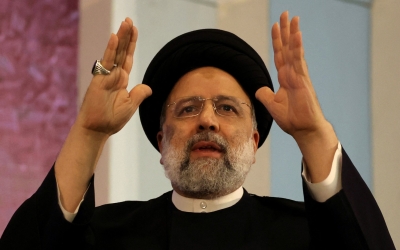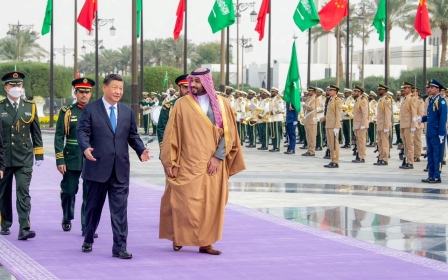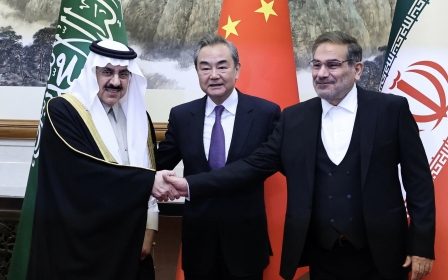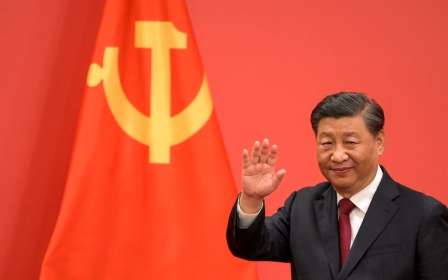Will stalled nuclear talks threaten Gulf-Iran detente?
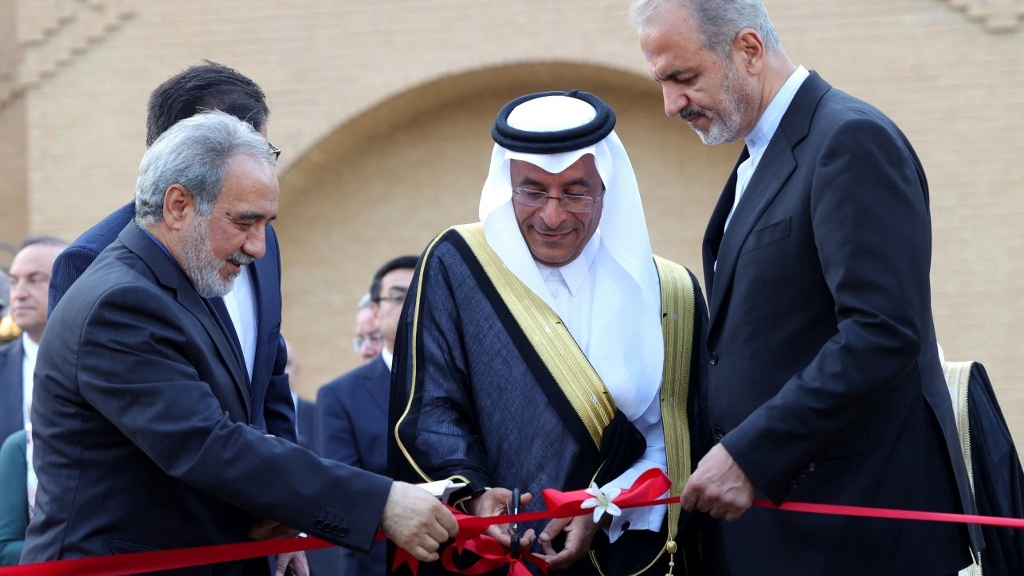
The Middle East's geopolitical landscape is experiencing a significant shift, largely driven by a growing recognition among regional countries that ongoing threats to territorial security hinder their ambitious socioeconomic development agendas.
Iran has made explicit threats to destabilise the region if it is cornered or isolated, and it has acted on these threats, most notably in 2019.
When Saudi Arabia severed ties with Iran in January 2016, it initiated a campaign to isolate and corner its rival, leading to many Arab countries downgrading relations with Tehran. The United Arab Emirates downgraded its diplomatic representation to a charge d’affaires, while Kuwait and Qatar recalled their envoys. Oman maintained a neutral stance, and Bahrain severed all ties.
Today, however, almost all of these countries have embarked on shuttle diplomacy with Tehran, seeking to normalise or expand ties.
There have been significant developments in the geopolitics of the Gulf since the 2019 attacks, which took the region to the brink of all-out war. The UAE has reappointed its ambassador to Iran and reclaimed its position as Iran’s top regional trade partner. Kuwait has also sent its ambassador to Tehran and resumed economic ties.
New MEE newsletter: Jerusalem Dispatch
Sign up to get the latest insights and analysis on Israel-Palestine, alongside Turkey Unpacked and other MEE newsletters
Qatar enjoys robust diplomatic ties with Iran, similar to Oman, where friendly relations have flourished. While Bahrain has yet to fully restore ties with Tehran, back-and-forth diplomatic engagements have commenced.
In the last Iranian calendar year ending 20 March, non-oil trade between Iran and the UAE, Qatar, Kuwait, and Iraq amounted to approximately $35bn. The UAE led the way with $24bn. Despite periodic tensions between Tehran and Abu Dhabi, the UAE’s economic relations with Iran have never stopped; after the return of the Emirati ambassador, the UAE-Iran Business Council held its inaugural meeting in Tehran last month to reinvigorate trade ties.
Business hub
Since 2017, Iran and Qatar have been engaging regularly through various newly established channels and forums. As a result, around 800 Iranian companies are now operating in Qatar, the Qatari-Iranian Joint Committee has been meeting regularly, and a Qatari-Iranian Business Council has been established. Qatar Tourism has also opened a representative office in Tehran.
The stalemate in negotiations over the resumption of the JCPOA poses the most significant obstacle to realising economic cooperation with Iran
At the same time, Oman is emerging as another new business hub for Iranians. The sultanate has lifted various restrictions on Iranian businesses, and bilateral trade had reached $1.3bn by March 2022, marking a record high and a 53 percent increase over the previous year.
The reopening of the Iranian embassy in Riyadh on 6 June, and the developments since the March agreement, indicate that Iran-Saudi ties are on track to exceed previous levels. King Salman has invited Iranian President Ebrahim Raisi to visit Saudi Arabia, and the foreign ministers of both countries have engaged in numerous phone calls and in-person meetings.
Discussions are underway to reestablish flights, resume imports and exports of local products, and open a joint chamber of commerce. The Saudi finance minister has expressed keenness to invest in Iran “very quickly”.
While western governments have been largely deterred from engaging directly with Iran amid ongoing protests for democratic and secular change, Arab states have refrained from openly expressing their views on the internal situation in Iran. This official silence can be attributed to their own experiences of Iranian interference in their domestic affairs, an issue they have consistently denounced.
Struggling economy
On the other hand, increased economic engagement between Iran and Saudi Arabia, as well as other Arab states, will not directly alleviate the challenges faced by the struggling Iranian economy or the individuals and companies targeted by international sanctions.
But it will provide an opportunity for ordinary Iranian businesses to resume interactions with their Arab counterparts across the Gulf. This outcome is particularly significant for non-state-backed, or non-Revolutionary-Guards-backed, businesses that are struggling in Iran.
Meanwhile, the fate of the Iranian nuclear programme and the Joint Comprehensive Plan of Action (JCPOA) play a crucial role in the calculations of regional and other countries when considering diplomatic and economic engagements with Tehran.
While Saudi Arabia, the UAE and Bahrain initially supported the Trump administration’s maximum pressure campaign on Iran, they now appear committed to easing tensions and resolving the nuclear issue through diplomatic means.
The removal of banking and trade sanctions on Iran is essential to unlock the full potential of economic cooperation between Iran and its Arab neighbours. No country wants to engage in activities that violate US sanctions.
Thus, the stalemate in negotiations over the resumption of the JCPOA poses the most significant obstacle to realising economic cooperation with Iran. The potential collapse of the deal represents the single most important risk factor that threatens not only the Beijing agreement, but the entire diplomatic process in the region.
The resolution of the nuclear issue, or lack thereof, and Tehran’s response to related international decisions will shape the future trajectory of regional dynamics.
The views expressed in this article belong to the author and do not necessarily reflect the editorial policy of Middle East Eye.
Middle East Eye delivers independent and unrivalled coverage and analysis of the Middle East, North Africa and beyond. To learn more about republishing this content and the associated fees, please fill out this form. More about MEE can be found here.



